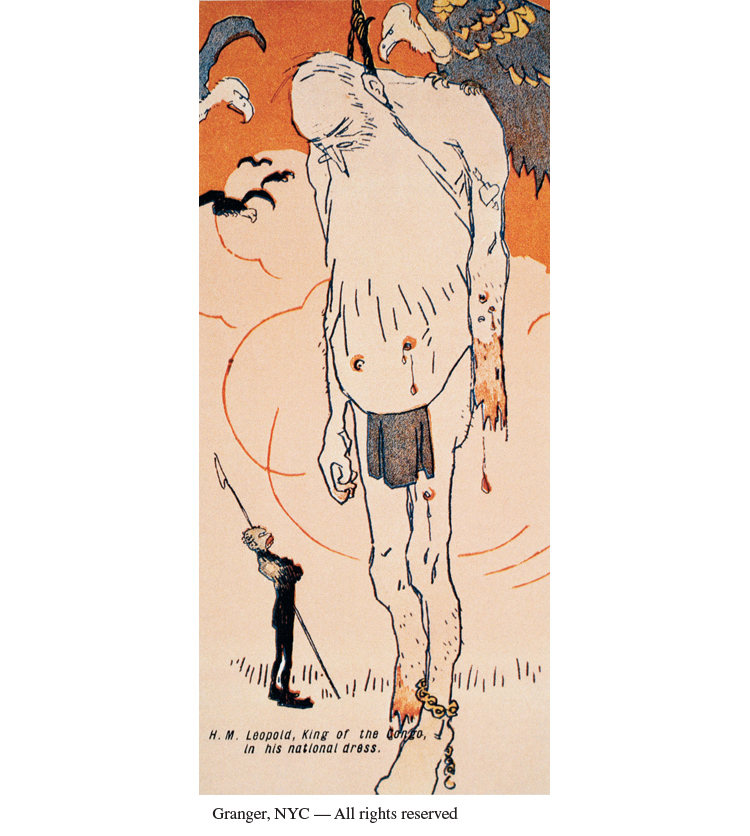A History of Western Society: Printed Page 805
A History of Western Society, Value Edition: Printed Page 774
A History of Western Society, Concise Edition: Printed Page 805
The European Presence in Africa Before 1880
Prior to 1880, European nations controlled only about 10 percent of Africa. The French had begun conquering Algeria in 1830, and by 1880 substantial numbers of French, Italian, and Spanish colonists had settled among the overwhelming Arab majority there. Yet the overall effect on Africa was minor.

At the southern tip of the continent, Britain had taken possession of the Dutch settlements in and around Cape Town during the wars with Napoleon I. This takeover of the Cape Colony had led disgruntled Dutch cattle ranchers and farmers in 1835 to make their so-
In addition to the French in the north and the British and Afrikaners in the south, European trading posts and forts dating back to the Age of Discovery and the slave trade dotted the coast of West Africa, and the Portuguese maintained a loose hold on their old possessions in Angola and Mozambique. Elsewhere, over the great mass of the continent, Europeans did not rule.
After 1880 the situation changed drastically. In a spectacular manifestation of the New Imperialism, European countries jockeyed for territory in Africa, breaking sharply with previous patterns of colonization and diplomacy.